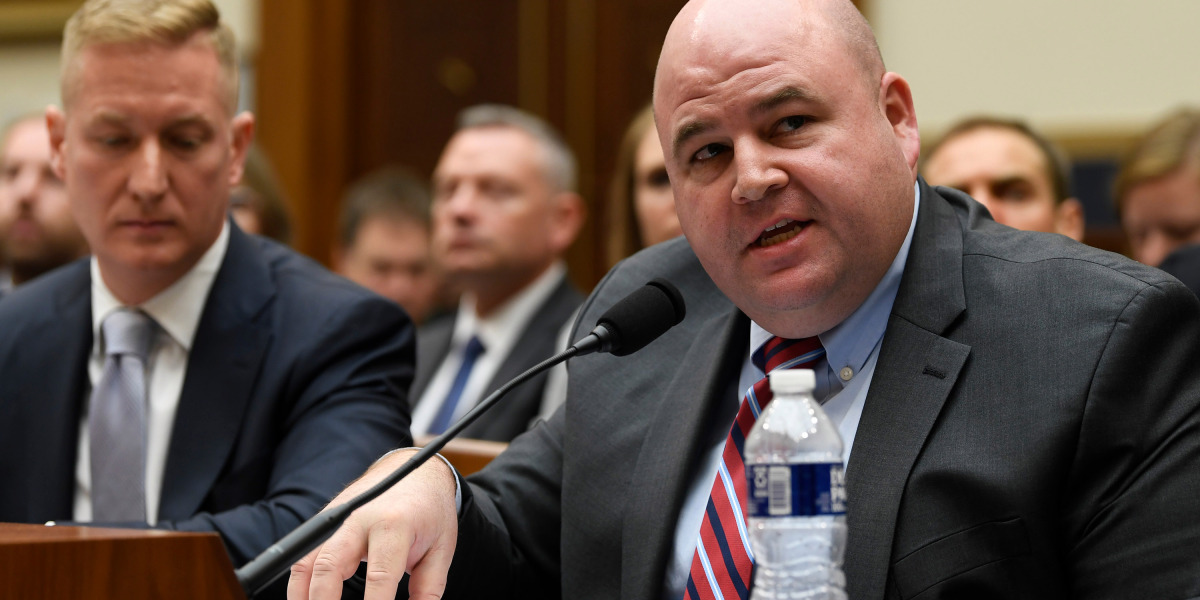
On Thursday, President Donald Trump sent an all-caps tweet claiming that voting machines from a company called Dominion Voting Systems had deleted millions of votes for him around the country. The claim isn’t true, but he is the president—so it has had an impact. Election workers say they fear for their safety. They’re receiving death threats from supporters of the president.
Ben Hovland knows voting machines well. He runs the Election Assistance Commission (EAC), an independent federal agency that, among other jobs, tests and certifies this technology. The EAC writes standards for voting systems and tests the machines in labs for security, usability, and safety. And Hovland says there has been no widespread fraud or malfunction that would change the result of the election. Nor has the president—or the lawyers who have unsuccessfully tried challenging the result— produced any actual evidence supporting Trump’s claims.
Hovland and I discussed what’s happened since the election and the extraordinary amount of disinformation coming from the White House. During our conversation, which has been edited for length and clarity, Hovland talked about the president’s legal woes, the future of election security officials, and his message for Donald Trump.
Q: What’s your reaction when the president tweets that Dominion deleted 2.7 million Trump votes?
A: Number one, it’s pretty baffling. Number two, I just wish that if claims like that were going to be made, they would actually be backed up with something credible. I think those types of statements matter. They cause Americans to lose confidence in the process.
That’s really concerning. Look at the president’s litigation. What we see is a very different story in front of a microphone or on Twitter than we see in front of a courtroom or in front of a judge. We see bold statements on Twitter or at the podium, and we see hearsay and we see laughable evidence presented to courts. There’s just not a correlation between those.
This story isn’t new. You look back at the 2016 election: the president made claims that he lost the popular vote because allegedly millions of noncitizens voted. A presidential commission was created to find those millions of noncitizens and prove voter fraud. They didn’t. It was disbanded in embarrassment. We see that time and time again. There has been no evidence anywhere of widespread voter fraud.
Frankly, it’s disrespectful to the people who run elections. It’s disrespectful to their integrity to make these kinds of allegations, particularly when you’re not providing evidence. Anything that has been brought up has been easily refuted because it’s largely conspiracy theories. If there is anything to this, election officials will want to get to the bottom of it more than anyone. They care about the integrity of the process and want to make sure that it was fair and the will of the voters is reflected.
Q: It was recently reported that Chris Krebs, director of the Cybersecurity and Infrastructure Security Agency, is being pressured by the White House to change its Rumor Control page, which combats election misinformation in real time. Krebs now expects to be fired because he refuses to change the facts. What’s your reaction to seeing a well-respected election security official feeling that he’s got a sword over his head for the act of getting the facts out?
A: That alone tells you as much as anything I can say. The reality is Krebs has done a great job. Without his leadership, we would be nowhere close to where we are. I’ve said many times there’s been a sea change in information sharing between state, local, and federal partners on election security. So much of that credit goes to director Krebs and his leadership.
Rumor Control has been a fantastic resource. We really have seen an absurd number of baseless allegations made. None has been rooted in any real fact. It’s important to get the real story out there. Director Krebs has done a great job of empowering his staff and meeting election officials where they are, bipartisan and across the board, recognizing that our elections are decentralized. Each state runs elections in its own unique way. And that means you need to approach the space respecting that and knowing that it’s different states, and different election officials will have different challenges and need different assistance.
He’s done a great job recognizing that and adapting the program. The election infrastructure subsector has been the fastest-growing subsector that the government has ever stood up. Certainly it’s led to the most secure election we’ve ever had.
I was at the CISA operation center on Election Day, and between there and having representatives from election organizations, having representatives there from the manufacturer community, the intelligence community, and having election officials around the country in virtual rooms, we were able to have a level of visibility into what was happening across the country like we never had before.
Look at things that popped up on Election Day. No Election Day is perfect—elections never are—but this was done really well. And the things that popped up were sort of common election problems. There were some machines that didn’t start. There were some issues with the e-poll books. There were some poll workers that didn’t show up—that happens. But we were able to see those pop up and quickly address them. There were regular press background briefings giving the basic “Here’s what we’re seeing; here’s what we know.” Before the e-poll book issue spun up into some grand conspiracy, the facts were ascertained and shared, and we knew it was localized and being resolved and not a major cyber incident.
The ability to have that visibility to be able to keep things from snowballing also made a big difference this year. And so much of that is due to the work that director Krebs has done and his leadership in the space. I hope that he continues in the role for as long as he wants.
Q: Are you worried about further politicization of the election process?
A: I certainly hope that doesn’t happen. What you’re seeing in Rumor Control and in so many of these efforts is a commitment to the oath that we swore to the Constitution.
It’s trying to get the truth out about how our elections run, about the security and integrity of the election, the story of what this election was, about the will of the voters. A record number of Americans cast ballots this year. Ultimately, that is our democracy. And you’ve got to respect the will of the voters.
Q: Do you think the situation is exacerbated by the fact that it’s specifically the president who is putting a megaphone to this misinformation?
A: I think that is alarming, particularly the press conference so many networks cut away from. I think most Americans are not accustomed to seeing the presidential seal at the White House at the podium and hearing accusations like that, where his lawyers and others have failed to come up with any actual evidence or proof.
A lot of Americans listen to the president. They respect the office, or they are supporters of the president. You saw in some ways how that played out in people’s usage of mail-in absentee ballots. Some people have raised questions about how the percentage of absentee ballots going to President-elect Biden was overwhelming. Well, that’s because the president spent months saying you couldn’t trust mail-in ballots.
Certainly there’s a portion of the American people that believe him, and that is very concerning, because we had a free and fair election. The will of the people: they have made their voices heard, and election officials have just put in an unbelievable amount of work to ensure that this was a smooth election and the election has integrity.
Any claims otherwise just are sowing divisiveness amongst the American people. That is what our foreign adversaries want. They want to see these divides. They want to see us lose faith in our democratic process and systems. It’s really unfortunate to be doing anything that would cause Americans to lose faith in the process, particularly one that worked so well this year.
Q: If you could talk face to face with President Trump today about this election, what message would you deliver?
A: More than anything, I would talk about the consequences of these statements for election officials. I’ve heard from election officials personally. I’ve seen them in the media concerned about their own safety, the safety of their staff. These accusations, these conspiracy theories that are flying around, have consequences.
At a minimum, it’s insulting to the professionals that run our elections, and hopefully that’s the worst that comes of it. Our people, they’re doing their jobs, but they don’t feel safe doing it. That is a tragedy. That is awful. These are public servants. This isn’t a job you do for glory or to get rich.
It’s the job you do because you believe in our country, you believe in our democracy, and you want to help Americans. I can think of few callings that are higher. And I think it’s just really unfortunate that in a year we should be singing their praises and giving them credit, instead we’re talking about them receiving threats and being scared. That is unacceptable.

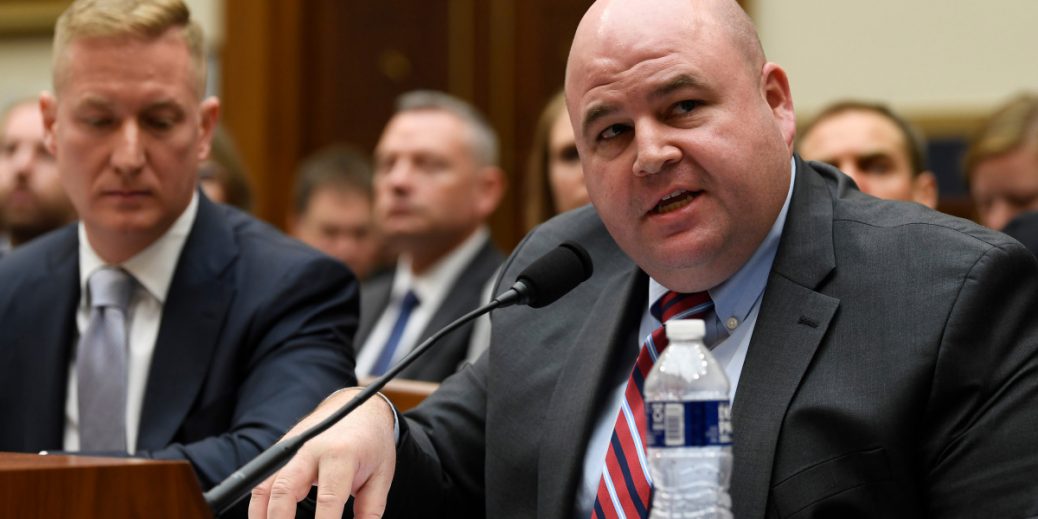
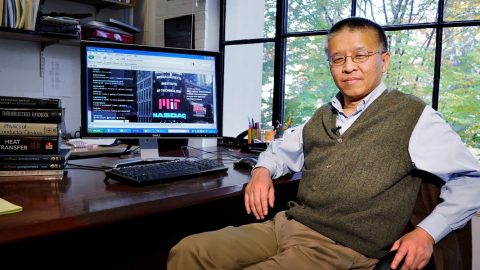
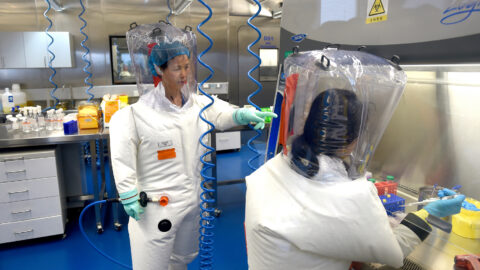



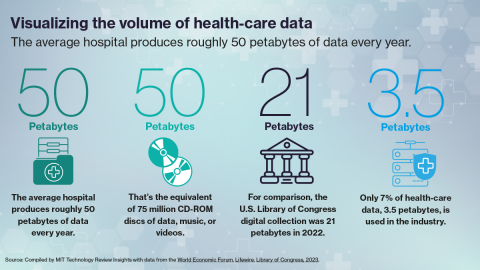

Recent Comments